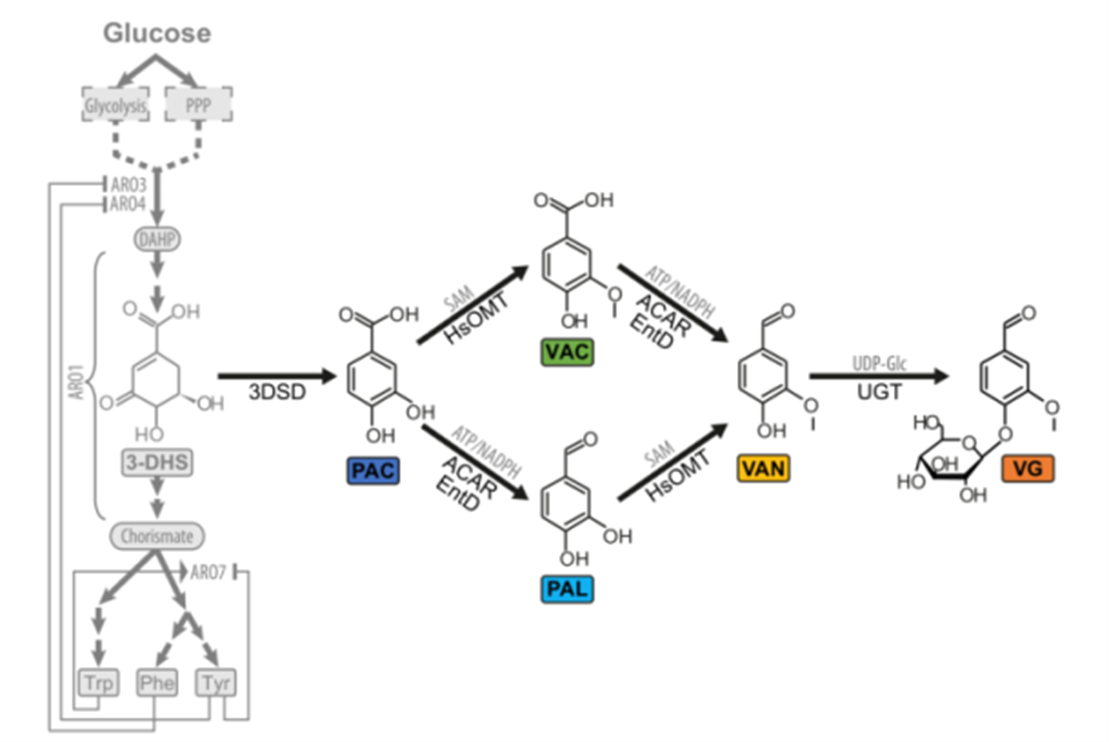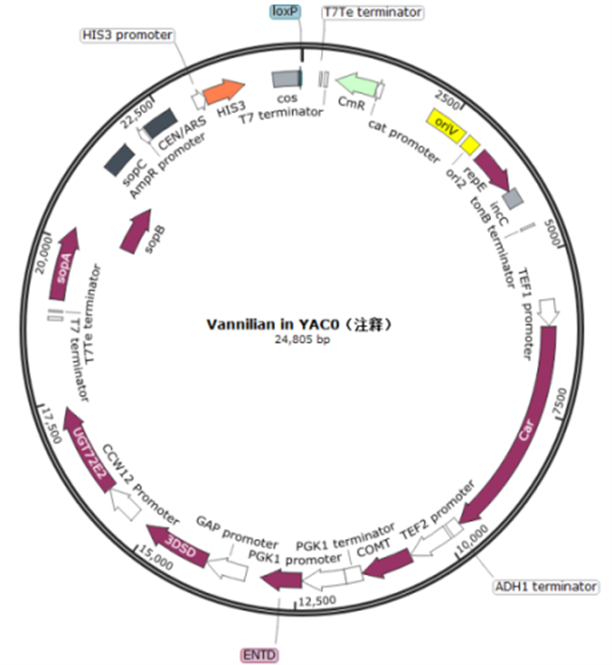Synthetic biology is a rapidly growing field that involves the design and construction of new biological systems. With its potential to create organisms with new functions and properties, synthetic biology is gaining attention in fields such as medicine, energy, and agriculture. Here are three key benefits of synthetic biology:
- Create New Living Systems: Synthetic biology allows scientists to create new biological systems that do not exist in nature. This opens up possibilities for creating organisms with new functions and properties, which could have important applications in fields such as medicine, energy, and agriculture. For example, scientists can design bacteria that produce biofuels or create plants that can better withstand drought.
- Understand Life at a Deeper Level: Synthetic biology requires a deep understanding of life’s fundamental principles. By studying synthetic biology, we can learn more about how living systems work and how we might be able to manipulate them for our benefit. This knowledge can help us design better drugs, develop more efficient agricultural practices, and create new sources of renewable energy.
- Solve Real-World Problems: Synthetic biology has the potential to solve some of the world’s most pressing problems, such as disease, food shortages, and climate change. By creating new biological systems that can produce medicine, food, and energy in sustainable and efficient ways, synthetic biology could have a significant impact on our quality of life. For example, synthetic biology could lead to the creation of crops that are resistant to pests and can grow in harsh environments, helping to alleviate food shortages in developing countries.
Are you ready to unlock the full potential of synthetic biology?
With the field advancing at an astonishing pace, it’s never been more important to stay ahead of the curve. Thanks to cutting-edge tools and technologies like DNA reading, writing, and editing, engineering biological systems has never been more accessible or affordable. And with so many exciting breakthroughs on the horizon, now is the time to explore what synthetic biology can do for you.
Synthetic biology offers a range of cutting-edge solutions that can help take your products to the next level. By harnessing the power of biological systems, we can produce everything from life-saving medicines to sustainable fuels and beyond. Here are just a few of the many ways in which synthetic biology is transforming the world of biomanufacturing:
From genetic engineering to high-throughput screening, there are many exciting ways in which this cutting-edge field is changing the game.
At the heart of synthetic biology is the ability to engineer biological systems at the genetic level. By introducing new genes into an organism’s genome, scientists can create new metabolic pathways that enable the organism to produce valuable compounds. This technique, known as genetic engineering, is the foundation of much of modern biomanufacturing.
But genetic engineering is just the beginning. Synthetic biology also encompasses metabolic engineering, in which an organism’s metabolism is modified to increase the production of a desired product. This might involve introducing new enzymes, optimizing gene expression, or removing competing metabolic pathways. By optimizing metabolic pathways, scientists can increase the efficiency of biomanufacturing processes and produce larger quantities of products in less time.
Another exciting area of synthetic biology is the development of cell-free systems, in which the biological reaction takes place outside of a living cell. This can be useful for biomanufacturing because it enables the production of compounds in a controlled environment that can be optimized for manufacturing efficiency.
Synthetic biology can be used to develop high-throughput screening systems that allow scientists to quickly test and optimize different biomanufacturing processes. By using automated systems to screen large numbers of potential biomanufacturing pathways, researchers can quickly identify the most efficient and effective pathways for producing a given product.
Synthetic biology is poised to transform the biomanufacturing industry by enabling the creation of more efficient and sustainable production processes for a diverse range of valuable products. Leveraging the power of biological systems, synthetic biology holds the promise of developing novel and innovative solutions to some of the biggest challenges facing the manufacturing industry today.
How is metabolic engineering being used in biomanufacturing?
Metabolic engineering is one of the most successful areas of biomanufacturing, especially in the production of high value-added natural products. These products have broad applications in industries such as pharmaceuticals, flavors, fragrances, and agrochemicals, and are often costly or challenging to extract using traditional chemical synthesis methods. Fortunately, metabolic engineering allows for the production of these natural products through genetic modification of microorganisms.
Through metabolic engineering, researchers have successfully produced natural products such as Artemisinin, a drug used to treat malaria, Taxol, a cancer treatment drug, and Vanillin, a flavor compound used in food and fragrance industries. These compounds are produced through genetically modified microorganisms, including yeast, bacteria, and algae, which have been engineered to efficiently produce the desired product.
Are you looking for a partner in your scientific journey?
At Synbio Technologies, we are committed to empowering scientific discoveries by providing access to the world’s most advanced synthetic biology tools and services. Our full range of DNA reading, writing, and editing technology platforms are designed to help you achieve your research goals, from metabolic pathway synthesis to customized library assembly and microbial genome editing.
We are proud to offer efficient and cost-effective solutions for strain design and construction, supporting the commercialization of biomanufacturing and pushing the boundaries of what is possible in the life sciences.
At Synbio Technologies, our mission is to help you achieve your research goals and drive scientific progress. Whether you are working on cutting-edge research or developing new biomanufacturing processes, we are committed to providing you with the tools and expertise you need to succeed.
Join us in exploring the exciting potential of synthetic biology today!
Real World Applications
Vanillin Metabolic Pathway Synthesis
Vanillin is a highly sought-after flavor compound used in a wide range of industries, including food, cosmetics, and pharmaceuticals. However, traditional extraction methods are unable to meet the ever-increasing global demand for Vanillin, making biomanufacturing a highly effective alternative. By leveraging the power of synthetic biology, researchers can create new, efficient pathways for Vanillin production, ensuring that this vital compound remains readily available to industries around the world. With the ability to engineer metabolic pathways and optimize gene expression, biomanufacturing offers a sustainable and scalable solution to meet the growing demand for Vanillin and other valuable compounds.

Diagram of Vanillin Metabolic Pathway

Construction of Vanillin Metabolic Pathway Vector

Vanillin LC-MS Results
Proline Production: Gene Editing for Optimal Results
Proline is a crucial component of proteins and plays a vital role in cellular adaptation to osmotic and dehydration stress, redox regulation, and cell apoptosis. However, traditional methods of proline production are often insufficient for meeting the growing demand for this valuable compound. We tackled this challenge by utilizing the power of synthetic biology to engineer a more efficient proline production pathway.
By performing a single-base edit on the proB gene, we were able to change one amino acid from Asp to Asn within the protein sequence. This simple modification had a profound impact on proline production, as the mutated strain successfully reduced the negative regulation of γ-glutamate kinase, resulting in an impressive 18-fold increase in proline expression.
Our findings demonstrate the vast potential of synthetic biology to revolutionize biomanufacturing, enabling the production of high-demand compounds like proline in a more sustainable and scalable way. With further research, we believe that synthetic biology can unlock even more exciting possibilities for biomanufacturing, helping to address some of the most pressing challenges facing our world today.
| Sample | Strain | Medium | Proline (ug/mL) |
| S1 | WT | M9 | 1.64765 |
| S2 | E.coli ΔproB-1 | M9 | 29.52035 |
| S3 | E.coli ΔproB-2 | M9 | 21.96415 |
Changes in Proline Production Before and After Point Mutation
References
- Baltz RH. Natural product drug discovery in the genomic era: realities, conjectures, misconceptions, and opportunities. J Ind Microbiol Biotechnol. 2019;46(3-4):281-299.
- Katz L, Baltz RH. Natural product discovery: past, present, and future. J Ind Microbiol Biotechnol. 2016;43(2-3):155-76.
- Gallage NJ, Møller BL. Vanillin-bioconversion and bioengineering of the most popular plant flavor and its de novo biosynthesis in the vanilla orchid. Mol Plant. 2015;8(1):40-57.
- Zou LQ, Kuang XJ, Sun C, Chen SL. [Strategies of elucidation of biosynthetic pathways of natural products]. Zhongguo Zhong Yao Za Zhi. 2016;41(22):4119-4123.
 DNA Synthesis
DNA Synthesis Vector Selection
Vector Selection Molecular Biology
Molecular Biology Oligo Synthesis
Oligo Synthesis RNA Synthesis
RNA Synthesis Variant Libraries
Variant Libraries Genome KO Library
Genome KO Library Oligo Pools
Oligo Pools Virus Packaging
Virus Packaging Gene Editing
Gene Editing Protein Expression
Protein Expression Antibody Services
Antibody Services Peptide Services
Peptide Services DNA Data Storage
DNA Data Storage Standard Oligo
Standard Oligo Standard Genome KO Libraries
Standard Genome KO Libraries Standard Genome Editing Plasmid
Standard Genome Editing Plasmid ProXpress
ProXpress Protein Products
Protein Products
























